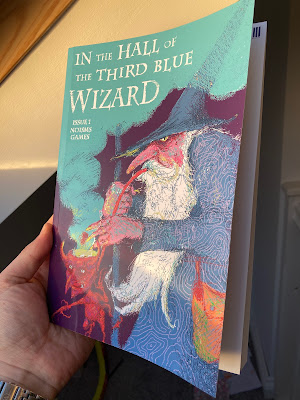I was accused of having spent the last 10 years under a rock yesterday when I texted a friend with the discovery that there is a reboot of Willow in the works. Willow, of all things. I am against 'reboots' and remakes as a matter of principle, but even if I wasn't, I still don't think I could quite get my head around what it is about Willow that would justify such treatment in its case. When was the last time you even remembered Willow existed, let alone watched it?
The barrel is clearly now being scraped - the 70s, 80s and 90s having been plundered so thoroughly by the reboot machine that 'creatives' (I use the term loosely) are now being forced to do the cinematic equivalent of raiding the back of the kitchen cupboard for old cans of kidney beans and spam in order to rustle up a meal. When Willow is on the menu, you know that it's been a long while since dad brought home any bacon. I genuinely don't know what could be next - The Ice Pirates?
My friend asked me whether there is a film or franchise from my youth that I would like to see updated. My answer is 'no', but his question did spur me to ask myself what I would like to see in a new fantasy film. If I had my druthers, what kind of film would people be making?
- Well, it perhaps goes without saying, but while I will tolerate films that are based on books, I really prefer it if people actually - bear with me, I know this is a radical concept - come up with new characters, stories and settings when they make films. I know, mind=blown, right?
- I really dislike that species of modern special effects which I term CGI Roger Rabbit, where you have real actors running around in front of a green screen and computer generated monsters roar at them and chase them. (I also have a general thing against monsters which roar at people and chase them. I now remind myself of Kevin Smith's description of Scott Mosier as a film critic: 'Listen, this motherfucker doesn't like anything.') I much, much, much prefer good animation, or skilful use of puppets/mechanics (like the tyrannosaur scene in Jurassic Park) in order to show fantastical/impossible things on screen. My ideal fantasy film would be a hand-drawn animation. (I also hate Pixar films.)
- I like the mood of Miyazaki's film-making but (whisper it) often his plots leave a lot to be desired. Capturing the feeling of watching a Miyazaki film but in a different style of animation and with a good story would be perfect, thanks.
- Guillermo del Torro would be nice as director - it's a tragedy he was shunted off The Hobbit, as with him in charge it had a fighting chance of being good, or at least interesting - or, naturally, Inarritu. Inarritu's The Revenant is actually another good touchstone (CGI bear notwithstanding) for the kind of thing I think a fantasy filmmaker should aspire to.
- I am also a fan of filmmakers (well, okay, Mel Gibson is the only one I can think of) who will have a stab at having the cast speak in unfamiliar languages with subtitles rather than have people from a very distant and strange culture sound like they're from California, or the English home counties if they're a villain. Creating a new fantasy/alien language for a film and having the cast speak primarily in it is the pinnacle of aspiration here.
- Actually, I thought of another director who has done this - James Cameron. And Avatar is another touchstone, come to think of it. It is painfully flawed in so many ways, but you have to give him credit both for the spectacle and for having the ambition to create a genuinely new thing. If Avatar hadn't been so very cliched and had been hand-drawn but on the same scale, it would be remembered as one of the greatest films of all time - by me, at any rate.
- A film should ideally have a consistent mood, and one of the things that I most strongly dislike about modern blockbuster film-making is the tendency to endlessly slip between over-the-top melodrama and sledgehammer style 'comic relief' moments and back again without ever finding equilibrium. The Peter Jackson LOTR and Hobbit films were all like this - the death of the goblin king in the first Hobbit film being the classic example. I don't expect the tone to be relentlessly similar throughout, but lurching between registers is a no-no.
- Fight scenes - I hate anything that is obviously choreographed. My favourite fight scenes in films are David Cronenberg's chaotic ultra-violence (Eastern Promises; A History of Violence), the hyperrealism of McQuarrie's The Way of the Gun, and the down-and-dirty 'real' realism of, say, the final shootout in David Mamet's Heist.







